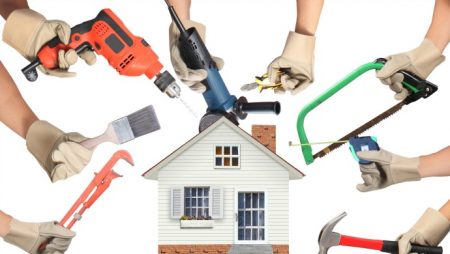Renting your property to tenant won’t always be rainbow and sunshine. Even the agreement won’t as white and black as you thought due to circumstances. Of course, everything can be handled with agreement and contract you and your tenants have been signed from the beginning of the lease. However, sometimes situations can be different especially when emergencies come into the picture. It is easy to misinterpret the law because they are different between non-urgent and urgent repairs. Misinterpretation can lead to misunderstanding and cause some tension between tenants and landlord. As property owner, you have responsibilities to handle everything well.

How to handle urgent repairs
Sometimes, there might be times when your tenants suddenly order their own repairs because they consider it as emergency even if it is legally not. Sometimes, there is disagreement to define emergency from tenant’s and landlord’s point of view. Another example is when landlord delay repair within period the tenants consider as inappropriate. Those are problems related to emergency situations regardless if it’s misinterpreted or misunderstood by one of both parties. Here are tips to handle emergencies:
- As a landlord and property owner, you should always be prepared for every possible things. You should has a plan in writing between yourself, your tenants, and your property manager. The plan should be able to outline the right and proper procedures when emergencies occur. In the agreement, you should specifically state about how to cover the repairs considered as emergencies. It should also define clearly the course of action to take to deal with emergencies. It is even better if you put in contact details for your preferred tradesmen. This way, the tenants don’t necessarily need to reach you or property manager especially when you are out of reach during emergency situations (repairs).
- If emergencies occur and you or your property manager are out of reach, your tenants can pay for the repairs. However, they can ask for reimbursement from you as a landlord. Each state has different law to decide the amount the tenants can pay out of their own pocket for emergency repairs. You can also sort it out in your lease agreement so that everything is already crystal clear from the beginning.
- As property owner, you should remind your tenants that they should never hire the services of tradesmen without your permission for basic repairs. This point should be included in the lease agreement.
- If you are unsure how to make the proper contract that can cover all important matters in the lease agreement, you can ask some advice from professional. This not uncommon for landlord to find it challenging to make the right agreement or lease contract because it also needs to be tailored to the state and territory your property is in.
- You can also prevent emergency repairs by conducting regular inspection and maintenance. Thus, it can prevent potential issues before they can really turn into emergency. You just have to remember that the contract is what protect you as well as your tenants.